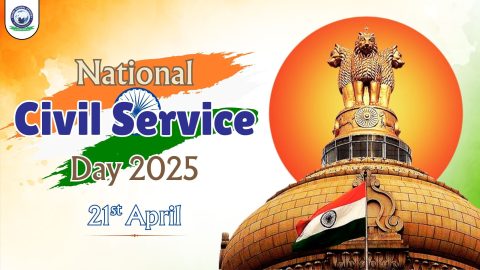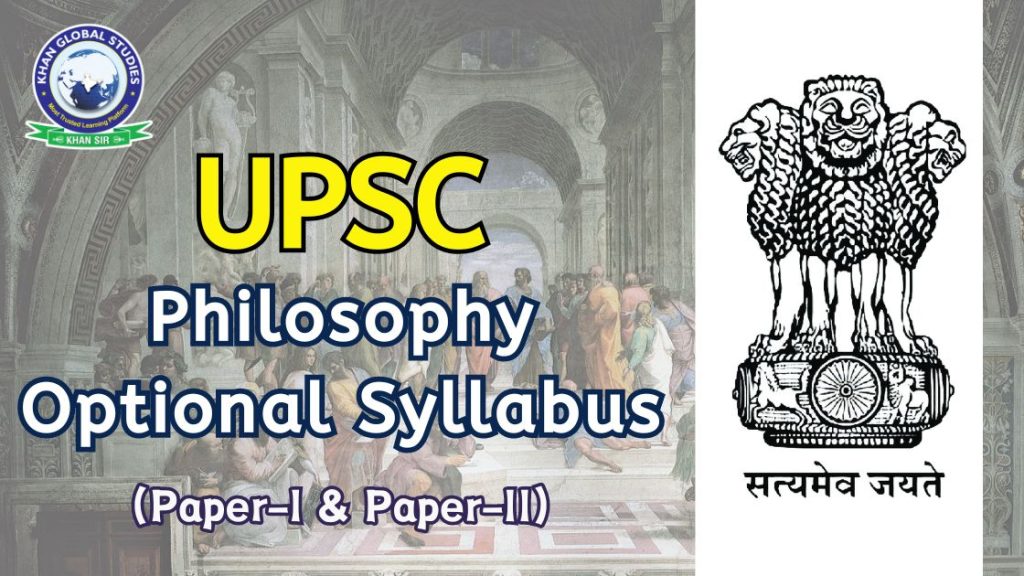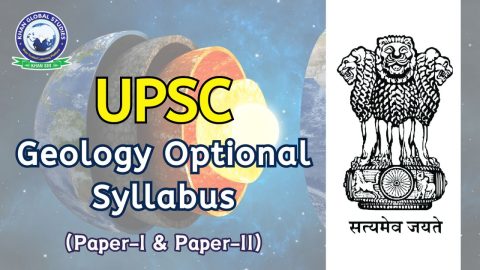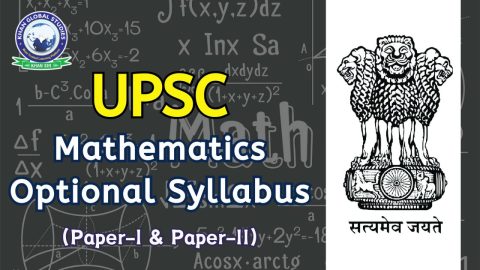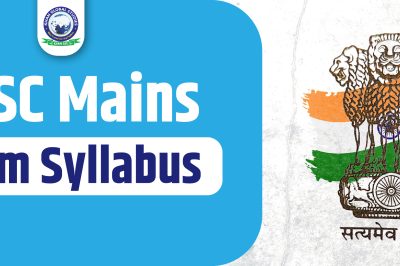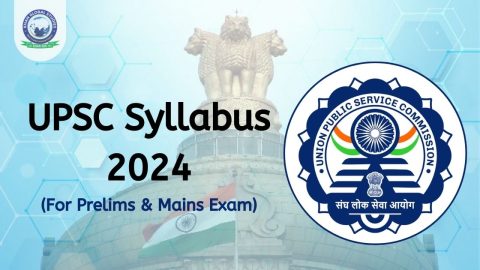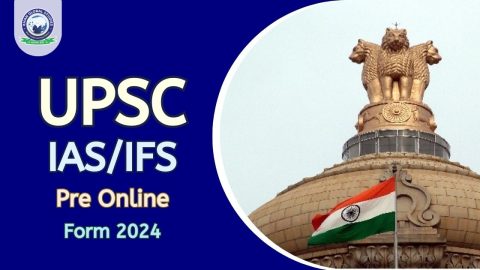UPSC Civil Services Main Examination has Philosophy as one of the optional subjects with 2 papers (Paper I and Paper II). The main examination of the IAS exam consists of nine papers including two optional papers. This article provides you UPSC Philosophy Syllabus for optional subjects.
UPSC Philosophy Optional Syllabus
UPSC Philosophy optional course is designed to assess the candidates’ understanding of various philosophical concepts, theories and thinkers. Choosing Philosophy as an optional subject for the UPSC Civil Services Main Examination can be a unique and intellectually rewarding option. Philosophy develops strong critical thinking and analytical skills. It teaches you to evaluate arguments, analyze complex ideas and develop logical reasoning, which becomes an asset not only in the UPSC Mains exam but also in your personal and professional life.
UPSC Philosophy Optional Syllabus for Paper-1
History and Problems of Philosophy
- Plato and Aristotle: Ideas; Substance; form and substance; Reason; Reality and possibility.
- Rationalism (Descartes, Spinoza, Leibniz); The Cartesian method and certain knowledge; Substance; God; mind-body dualism; Determinism and freedom.
- Empiricism (Locke, Berkeley, Hume): Theory of knowledge; Substance and Properties; Self and God; Skepticism.
- Kant: The possibility of synthetic primary judgment; space and time; Categories; ideas of reason; Antinomies; Criticism of the evidence for the existence of God.
- Hegel: Dialectical Method; Absolute idealism.
- Moore, Russell, and the early Wittgenstein: A defence of common sense; Refutation of idealism; Logical atomism; Logical construction; incomplete symbol; Picture theory of meaning; Tell and Show.
- Logical Positivism: The Verification Theory of Meaning; Rejection of Metaphysics; The linguistic theory of necessary propositions.
- Later Wittgenstein: Meaning and Uses; Language Games; Criticism of Private Language.
- Phenomenology (Husserl): Method; theory of essence; Protection from psychology.
- Existentialism (Kierkegaard, Sartre, Heidegger): existence and essence; Choice, responsibility and authentic existence; Living in the world and mortality.
- Quine and Strawson: Critique of Empiricism; Basic description and principles of individuals.
- Charvaka: theory of knowledge; Rejection of elite institutions.
- Jainism: the doctrine of reality; Saptabhanginaya; Bondage and liberation.
- Schools of Buddhism: Pratyeyasamutpada; Transience, selflessness.
- Nyaya-Vaisheshika: Theory of Categories; principle of presence; Theory of proof; Self, liberation; God; Proof of the existence of God; principle of causation; Atomic theory of creation.
- Sankhya; Prakrit; Purusa; Reason; Freedom.
- Joint; Citta; attitude of mind; Klesas; Samadhi; Kaivalya.
- Mimamsa: Theory of knowledge.
- Schools of Vedanta: Brahmin; God; Soul; creatures; universe; Maya; the farewell; Adhyasa; salvation; Aparataksiddhi; Five differences.
- Aurobindo: development, evolution; Integral Yoga.
UPSC Philosophy Optional Syllabus for Paper-2
Socio-Political Philosophy
- Social and political ideals: equality, justice, freedom.
- Sovereignty: Austin, Bodin, Laski, Kautilya.
- Individual and State: Rights; Duties and Responsibilities.
- Forms of Government: Monarchy; Theocracy and democracy.
- Political Ideologies: Anarchism, Marxism and Socialism.
- Humanism; secularism; Multiculturalism.
- Crime and Punishment: Corruption, mass violence, genocide, death penalty.
- Development and social progress.
- Gender discrimination: female foeticide, land and property rights; Empowerment.
- Caste Discrimination: Gandhi and Ambedkar.
Philosophy of Religion
- Concepts of God: Attributes; Relationship with man and the world. (Indian and Western).
- Proofs of the existence of God and their criticisms (Indian and Western).
- The problem of evil.
- Soul: immortality; Rebirth and liberation.
- Reason, Revelation, and Faith.
- Religious Experience: Nature and Object (Indian and Western).
- Religion without God.
- Religion and morality.
- Religious pluralism and the problem of absolute truth.
- The nature of religious language: analogical and symbolic; Cognitive and non-cognitive.
Tips to Prepare UPSC Philosophy Optional Syllabus
- Familiarize yourself with the curriculum to know what topics are covered.
- Study from the books and coaching notes recommended above for each subject.
- Focus on understanding philosophical concepts in depth.
- Read the original texts of philosophers and engage critically with their ideas.
- Take brief notes to summarize the main points and arguments.
- Practice philosophy answer writing regularly or join the online test series to develop clear and structured writing.
- Practice UPSC previous year question papers and mock tests for time management and familiarity.
- Review and revise notes from time to time to reinforce learning.
